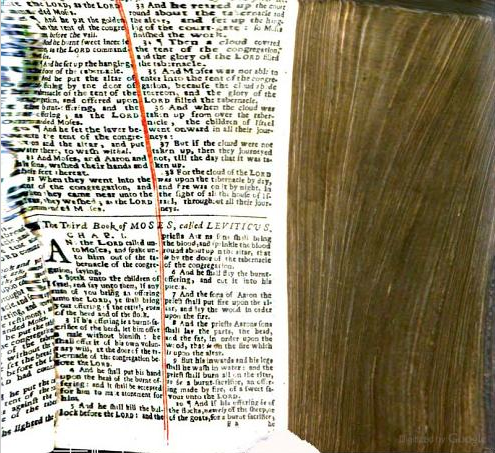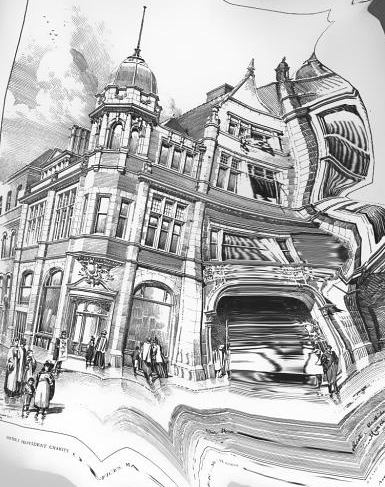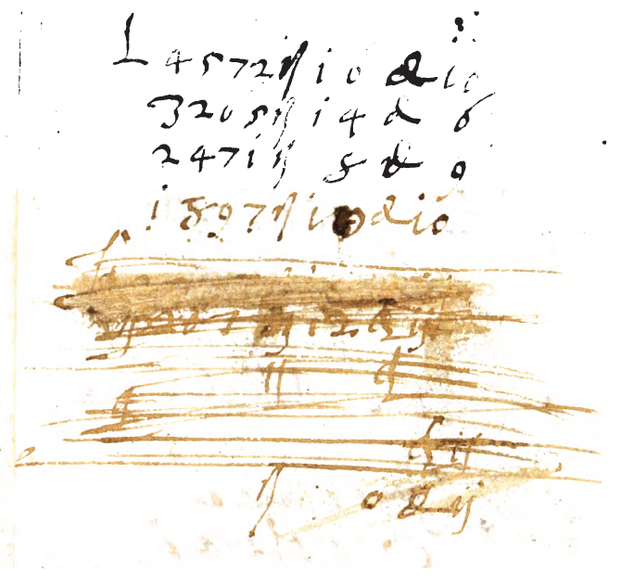There’s a silent deep conflict in libraries around the globe. Skilled, efficient and acknowledged traditional librarians are threatened by bosses who, in trying to cope with substantial funding cuts, use the word „digital”, touted as a panacea for saving space and money. In other (less traditional) places there is a parallel, massive digitalization of books aiming to establish virtual libraries much bigger than any traditional one. These phenomena are deeply questioning the library as innate points of reference: the public open repository of knowledge. Obviously it’s not only its bulky physicality to be questioned, but the core idea that we still need a central place in which to store, preserve, index, lend, and share knowledge, after the advent of truly ubiquitous networks. It’s important not to forget that traditional (public and private) libraries are able to guarantee preservation and access to a huge number of texts which are still unavailable digitally, and that the material conditions of the book is sometimes telling part of the story, not to mention the way one can experience the act of reading in a library. Nevertheless it’s quite evident that we’re facing the biggest digitalization ever attempted for printed texts, in a process similar to the one triggered by Napster with music in the early 2000s. But this time with a lot more parallel „institutional” efforts, as we so often hear an announcement of new historical material made accessible on screen by big and small libraries/institutions. The biggest are Google Books (private) and Internet Archive (no profit). The former officially aims to create a „universal library”, privately owned, and which in April 2013 claimed to contain 30 million digitized books 1. The latter is an effort to make a comparably huge public library with Creative Commons licenses and getting rid of Digital Rights Management chains, claiming almost 5 million digitized books.
These monumental efforts are struggling with one specific element: time, or how long it’ll take to create digital content converting it from another medium. Which of course creates accidents in the process, as the blog/artwork The Art of Google Books 2 by Krissy Wilson, proves, daily exploring the non-digital elements (accidental or not) emerging in scanned pages, which can be purely physical, like scribbled notes, parts of the scanning person’s hand, dried flowers, or conceptual, like faults, errors, deleted or missing parts, all of them precisely annotated. This small world of physicality causing technology to naturally fail is maybe quite self-reflective, but it’s showing peculiar aspects of a larger scenario. In fact the industrial scanning is only one side of the coin. The other is the private and personal digitalization and sharing of books. Armed with terrific open source tools like the DIY Bookscanner 3, there are various technical and conceptual efforts in building focused digital libraries. Monoskop 4 by Dušan Barok, is one of the most emblematic: he transformed his impressive accumulated personal collection of media (about contemporary art, culture and politics, with a special focus to the East of Europe) into a shared one, freely downloadable and regularly updated. It’s a remarkably inspired selection which can be shared regardless of its eventual copyright restrictions. Monoskop is an extreme and excellent example of a personal digital library made public. But any small or big collection can be easily shared. Calibre 5 is an open source software that can efficiently help to manage a personal library, and can also create temporary or stable autonomous zones in the networks to share entire libraries among a few friends or entire communities. Marcell Mars 6, hacktivist and programmer, has worked intensively around this subject. He co-organized (together with T.Medak and V.Ćosić) the HAIP 2012 Festival 7 in Ljubljana where skilled software developers collectively worked on a complex interface for searching and downloading from major online e-book independent collections, turning them into a sort of temporary commons. One of his remarkable statements is: „when everyone is a librarian, the library is everywhere.” It explains the infinite and recursive de-centralization of personal digital collections, and the role of digital in granting a much wider access to published content. But this granted access embodies the intrinsic fragility of the digital, or its being completely dependent on electricity, networks, integrity of storage media and updated hardware and software.
In this sense a few artists have engaged in conceptually exploiting this fragility applied to books. Among them David Guez, who created Humanpedia 8 which can be defined as an extravagant type of „time-based art”. In fact, the work is clearly inspired by Ray Bradbury's Fahrenheit 451, where as society is completely banned from the use of books, a small secret community conspires in order to memorize entire tomes, preserving and orally transmitting them. Guez is applying this strategy towards Wikipedia, calling for people who are willing to take on the public responsibility to memorize one Wikipedia article, forever, implicitly stating that our brains can store information more reliably than computers. So, in the end, what would be the role of old-fashioned libraries? They can potentially be the best place (paradoxically enough) where one can learn how to digitize books, or eventually how to print out and bind digital ones. Their untouched quality is also to be a protected common where cultural objects can be retrieved and enjoyed anytime in the future. A timely work in this respect is La Société Anonyme’s The SKOR Codex 9 The group (including Barok, again, D. van der Kleij, A. Mansoux, and M. de Valk) has printed a book whose content (text, pictures and sounds) is binary encoded, with enclosed visual instructions about how to decode it. A copy will be indefinitely preserved at the Bibliothèque Nationale de France through a signed agreement. This work is indeed a time capsule, enclosing information meant to be understood also in the future. But we can be reassured that it will be there (with its content of digital nature), ready to be taken from the shelf, and that it will be established to be for many years from now.
[1] http://www.nybooks.com/articles/archives/2013/apr/25/national-digital-public-library-launched/
[2] http://theartofgooglebooks.tumblr.com/
[3] http://www.diybookscanner.org/
[4] http://monoskop.org/log/
[5] http://calibre-ebook.com/
[6] http://protopage.com/kiberkomunist
[7] http://2012.haip.cc/
[8] http://www.humanpedia.fr/
[9] http://societeanonyme.la/#codex


